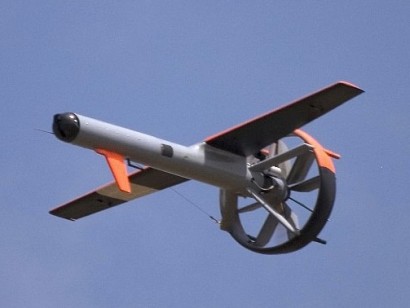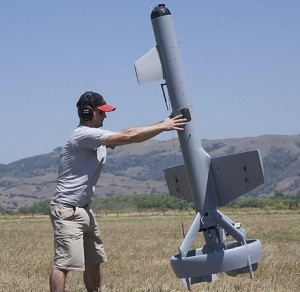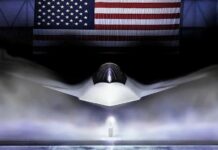
The US Air Force selected a team headed by UAV makers MBL, AAI, and Brigham Young University, to develop a vertical take-off and landing unmanned aerial vehicle meeting Tier II size, weight and performance (SWAP). They vehicle will have an 8 ft. wingspan, 10 hour endurance, 55 lbs. gross take-off weight, and 70 mph cruise speed. The unique design will enable the warfighter to gain situational awareness over urban and complex areas, while operating UAVs from confined areas.
According to MLB, the design pursued by the team will be based on its V-Bat VTOL UAV. The development is performed under an Air Force Phase II SBIR award. The Design combines the operational flexibility of VTOL, with the safety provided by the shrouded fan. On the other hand, extended mission endurance is achieved by the fixed wing configuration, extending the platform’s mission endurance beyond that of much larger platforms.

Last year, under a DARPA contract, MLB demonstrated precise emplacement of small payloads from the V-Bat operating in hover mode under a vision-based control system. Under the Phase II SBIR award, MLB will build vehicles and conduct a comprehensive flight test program for the V-Bat through all phases of flight, culminating in fully autonomous operational demonstrations. Brigham Young University will develop control algorithms and support flight tests.
AAI Unmanned Aircraft Systems will focus on preparing the system design for low-rate initial production and refine requirements through customer engagement.
According to the V-BAT designer MLB there is a growing interest in unmanned platforms among military and homeland security customers. The V-Bat design was originally solicited by a commercial customer for aerial mapping. More recently, the company has been approached by potential customers in several government agencies and by commercial groups seeking an anti-piracy solution.
















